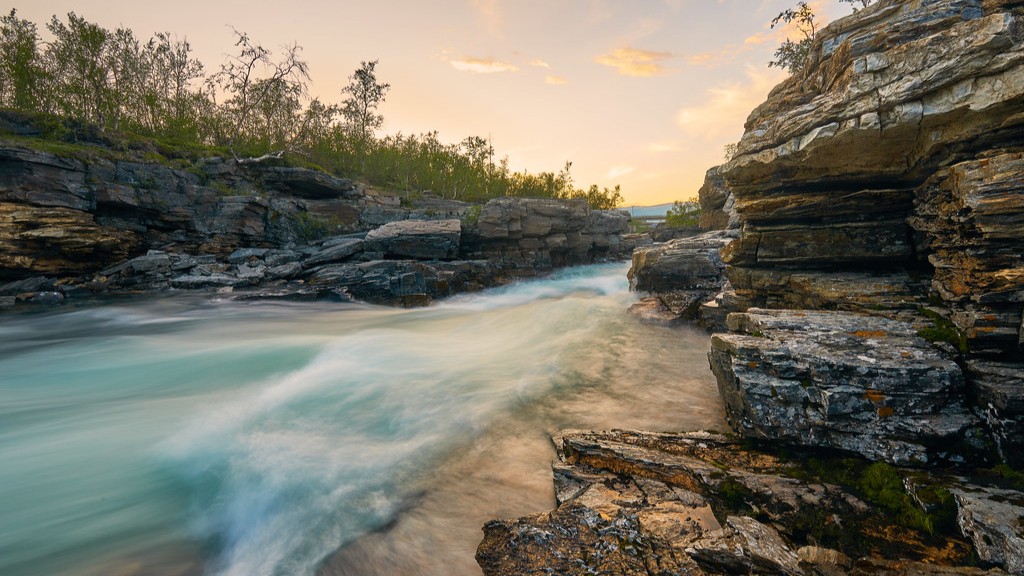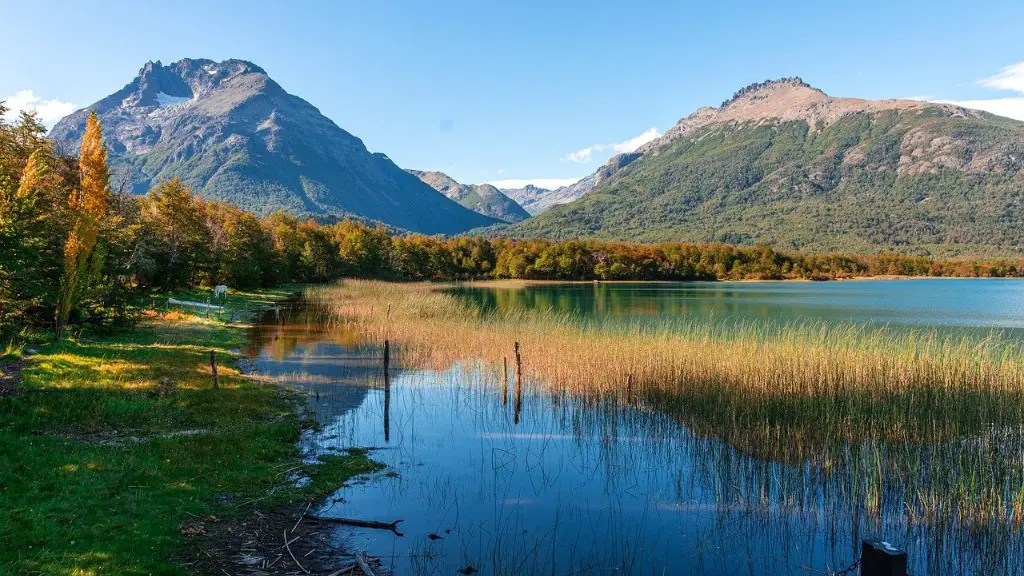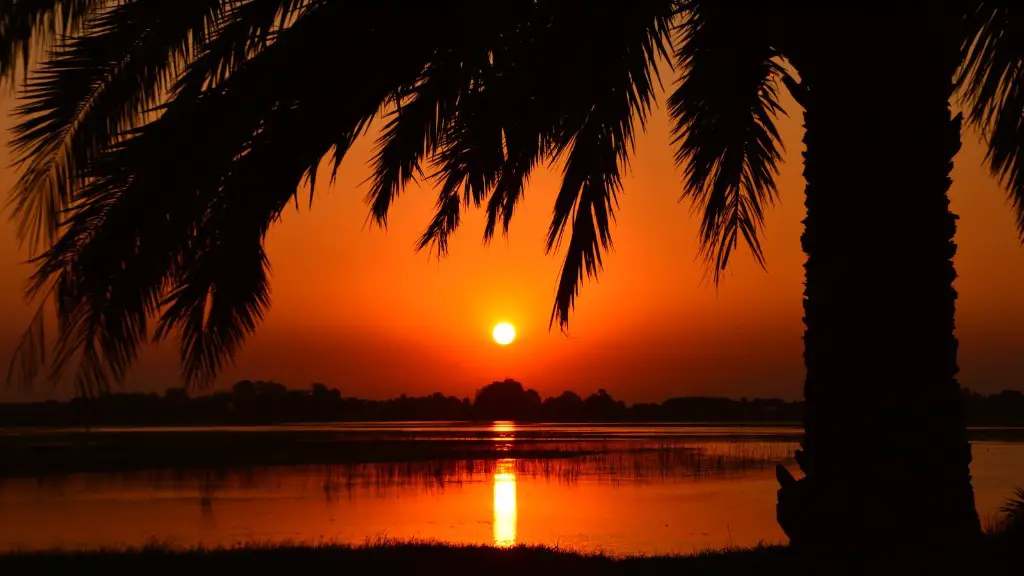What is the Mississippi River?
The Mississippi River is an iconic American waterway that begins in Lake Itasca in Minnesota and winds its way through ten US states before emptying its waters into the Gulf of Mexico. Forming the fourth longest river system in the world, the Mighty Mississippi is more than 2,200 miles long and has formed the economic and cultural backbone of the area throughout its history.
Can You Traverse the Mississippi River by Boat?
The question of whether or not you can traverse the Mississippi by boat depends heavily on your intended journey. Many stretches of the Mississippi are indeed available to boat traffic and feature major river ports. Towns like Baton Rouge, Louisiana, and St Louis, Missouri, are home to vital river ports that are essential to the transportation of goods and materials between the states.
Other areas of the river are difficult to travel due to the shifting water depths and ever-changing riverbanks. In some places, sandbars and rocks can impede progress or even cause hazards, particularly for small or shallow-draft vessels. The currents of the Mississippi can also be strong, sometimes washing out the banks of the river, which can cause navigational challenges for boat owners.
Should You Take a Cruise on the Mississippi?
If you’re looking for a relaxing way to experience the Mighty Mississippi, you may want to take a cruise. While some operators offer small-boat excursions, there are larger vessels that offer more comforts with plenty of sightseeing opportunities. These trips can take anywhere from a few days to a few weeks, depending on the itinerary, and they offer a unique view of the river and the communities that depend on it.
You may also want to consider a charter service, where you can customize a trip through different parts of the river. From camping on an undeveloped sandbar to exploring a steamboat graveyard, there’s a lot to discover on the Mississippi. Many charter companies offer expertise in trip planning and safety, so you can enjoy the river without worry.
What Should You Know Before You Travel the Mississippi?
Before taking a trip on the Mississippi, it’s important to be aware of some important safety tips. It’s important to check the river for navigation hazards, and to familiarize yourself with the rules and regulations governing the river. Additionally, it’s important to be aware of the weather, as the Mississippi is prone to flooding, storms, and strong currents. It’s also important to stay aware of your location, and to be aware of the other boats and vessels on the river.
The History and Legacy of the Mississippi River
The Mississippi River played an important role in the history of the United States. Native Americans used the river as a meeting point for trading, and the first Europeans, led by Hernando de Soto, traveled along the river in 1541. The French established settlements along the river, and during the 19th century, the river became the gateway to the American West for the millions of people who made the journey searching for a new life and new opportunities.
Today, the Mississippi is still an important waterway. It’s a vital source of life and sustenance for the many towns and cities that dot its banks and a key thoroughfare for maritime commerce. It also continues to serve as an important symbol of freedom and adventure, reminding us of the vastness of America and the power of exploration.
Challenges Faced by the Mississippi River
The Mississippi River has faced many challenges over the years. It has been over-fished, polluted, and dammed in order to provide electricity, waterways and flood control. In addition, invasive species, such as the carp, are threatening native species and the overall ecological balance of the river. Climate change is another serious challenge, as rising temperatures and changing precipitation patterns could threaten water levels, affecting navigation and commerce.
The Ongoing Efforts to Conserve the Mississippi River
Fortunately, there have been many efforts to conserve the Mississippi over the years. The US Army Corps of Engineers is working to improve navigation on the river, and many local organizations have implemented efforts to reduce pollution and conserve habitats. Additionally, many states have passed legislation to limit over-fishing and the introduction of invasive species.
These efforts have led to some improvements in the condition of the river. Fish populations have rebounded in many areas, and water quality has improved. Additionally, more people are realizing the importance of the river and its unique role in American history, leading to increased support for conservation efforts.
T he Role of Rivers in the Society
Rivers have long been an essential part of human societies and civilizations. They provide a vital source of food, water, and transportation, and some rivers, like the Mississippi, have shaped the course of history. Rivers also provide an important sense of community, connecting people together in ways that no other source of water can.
In modern times, rivers are still an important part of society. They provide a place for people to connect with each other and the natural world. They are also often used for recreation and leisure activities, such as boating, fishing, swimming and camping. Lastly, rivers are often a source of inspiration, reminding us of the powerful currents that can carry us through life in unexpected ways.
Environmental Concerns of the Mississippi River
The Mississippi River faces a variety of environmental concerns, from pollution to the disruption of natural habitats. Pollutants from urban and industrial runoff have been a major issue, as they can reduce the oxygen levels in the water and impact the bird and aquatic life that depend on the river. Additionally, dams, levees, and other structures can disrupt the flow of the river, reducing its ability to transport sediment, nutrients, and other essential elements.
The changes in the riverbank can also lead to increased erosion, causing the banks to erode and collapse, leading to sandbars, rocks, and other obstacles that can impede boat traffic. Unfortunately, many of these problems are only expected to worsen in the face of climate change, making conservation efforts even more important.
Conclusion and Preservation of the Mississippi River
The Mississippi River is an important source of water, transportation, and recreation for the people and communities that rely on it. Unfortunately, it faces a variety of challenges from pollution and climate change to the disruption of natural habitats. Fortunately, there have been efforts to conserve and protect the river, from improving navigation to reducing pollution and protecting wildlife.
It’s clear that the Mississippi River continues to be an important part of American life, serving as an icon of freedom and exploration for generations of Americans. If we hope to protect its legacy for generations to come, it’s essential that we continue to make ongoing efforts to preserve this vital resource.
–END OF DOCUMENT–


